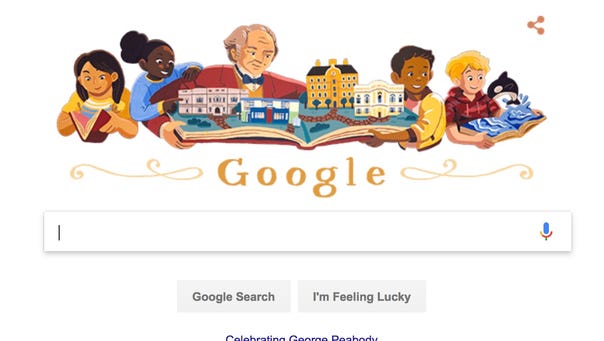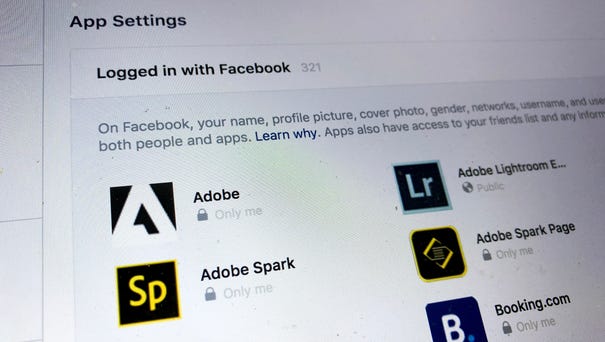| Google data download: I did it and I'm okay with the results |
| This is the week many of us downloaded our Facebook and Google data, because, well, we could. |
 |
| I was one of them, and while Facebook's was rather eye-opening, (why is it keeping addresses and phone numbers of my friends?) Google's data dump wasn't. At least to me. |
| |
| |
| Irish web developer Dylan Curran jumped in to find out what Google had on him and was shocked at his findings. He tweeted his reaction, in a 37-tweet tweetstorm that got widely read, with 4,400 comments, 160,000 retweets and 249,000 likes. |
| He was freaked that Google had kept his location and search history, the names of files he had saved for backup — even the ones he deleted — and every website he'd visited via Google, going back over 10 years. |
| "They are collecting a lot more information than people would be aware of," he told us. |
| We spoke to Curran for a #TalkingTech podcast, where Curran called for a "Digital Expiration Act," to be enacted by lawmakers. This is a fair compromise, he says. There is no reason for any company to hold onto our information for more than two to three years. "My information from 10 years ago isn't relevant to what ads I look at now," he says. |
| My take: In exchange for Google reminding me about upcoming trips, showing me my boarding passes, creating itineraries for me without asking and showing me how to navigate my way around town, Google has been tracking my every move for years since I started using it in the late 1990s, and I'm okay with that. |
| I can't imagine living without Google Docs, which has allowed me to write everything I do, for free, and have online access to the files no matter what computer I have. Calendar does a great job of reminding me what's on my schedule for the day, with updates across smartphone, computer and tablets. I love that every iPhone photo I've taken has been backed up automatically to Google Photos, and that I can use Google Photos to search for old photos of everything from my old Mazda car to an ice cream cone in Venice, Italy. |
| By snooping through my e-mail and tracking my searches, Google has enhanced my life for the better,. I wouldn't go cold turkey on Google, and I doubt any Talking Tech reader would either. But I think all of us agree we'd love to see our Google history scraped more often than not, right? |
| In other tech news this week: |
| —This week's huge data breach: Under Armour's MyFitnessPal diet and nutrition app said some 150 million users were affected, with usernames, e-mail addresses and hashed passwords. Reminder, if you're a user of MyFitnessPal, this would be a great time for you to go in and charge your password—now! |
| —President Donald Trump took after e-tailer Amazon, saying he was upset the company paid little in taxes, was hurting small business by offering lower prices and hurting the U.S. Postal Service as well. |
| —Apple staged a quiet, by Apple standards, event to tout a new iPad for education. In Chicago, Apple invited reporters to a local high school to check its new student-priced iPad ($299, $329 for the rest of us) that has the same size and price as last year's model (9.7 inches) but is 40% faster, according to Apple. Good try Apple — but I argue that the company gets an A for effort, C for execution. Read why here. |
| —In other Apple news, the company this week finally released a highly anticipated software update for the iPhone that promises to give you greater visibility into your own health—as well as the health of what could be a failing handset battery. The big feature: one that will prevent Apple from throttling your phone when the battery has turned into a weakling. |
| —A sad sign of the times. Kids in Great Britain now spend more time watching Netflix and listening to music on Spotify than via the venerable BBC, reports the Guardian. "As the trend shifts towards on-demand viewing, the BBC risks being overtaken by competitors," the BBC said. |
| —More layoffs at Snap, Inc., the parent company of messaging app Snapchat, with 100 folks in sales let go. This follows recent layoffs of 100 engineers, and a controversial app re-design that saw many outraged fans and some celebrities calling for a change, or switching to other apps. |
| This week's Talking Tech podcasts. |
| —Making a Hollywood movie with an iPhone. Director Steven Soderbergh used three iPhone 7s to make the current film Unsane, and we run down the accessories and apps he used for the filming. |
| —Review: expand smartphone photography with Moment lens. Our look at the wide-angle lens for the iPhone X by Moment, which greatly expands the view, and is especially helpful for group shots and scenics. |
| —Apple's pitch failed, but I'd want an iPad. Our take on Apple event and why it failed. Without a dramatic price drop for the iPad, parents and school administrators are still more likely to stick with Google's lower-priced Chromebook computers for K-12 students. |
| —How to use Facebook effectively. We talk to analyst Jeremiah Oywang, in the wake of the privacy debate, about how to use the social network more effectively by giving it less information. |
| —Hey Alexa, play me the Yankees on TuneIn. The online radio station is bringing premium and sports to the connected Amazon Alexa speaker platform. TuneIn's Tony Archibong touts the new new subscription service for on-demand broadcasts of sports and news. |
| —It's not just Facebook--Google's bad, too. Irish programmer Dylan Curran joins us to discuss his shock over downloading his Google history data, and what he believes needs to be done about data collection from big Internet companies. |
| That's it for this week's Talking Tech weekend wrap. Please subscribe to the TalkingTech newsletter via this link. Follow me on Twitter, @JeffersonGraham and check out my YouTube channel, http://www.youtube.com/jeffersongraham. If you haven't checked out the daily #TalkingTech podcast yet, now's the time. You can listen on Stitcher, Apple Podcasts, iHeartRadio or wherever you enjoy online audio. |









No comments:
Post a Comment